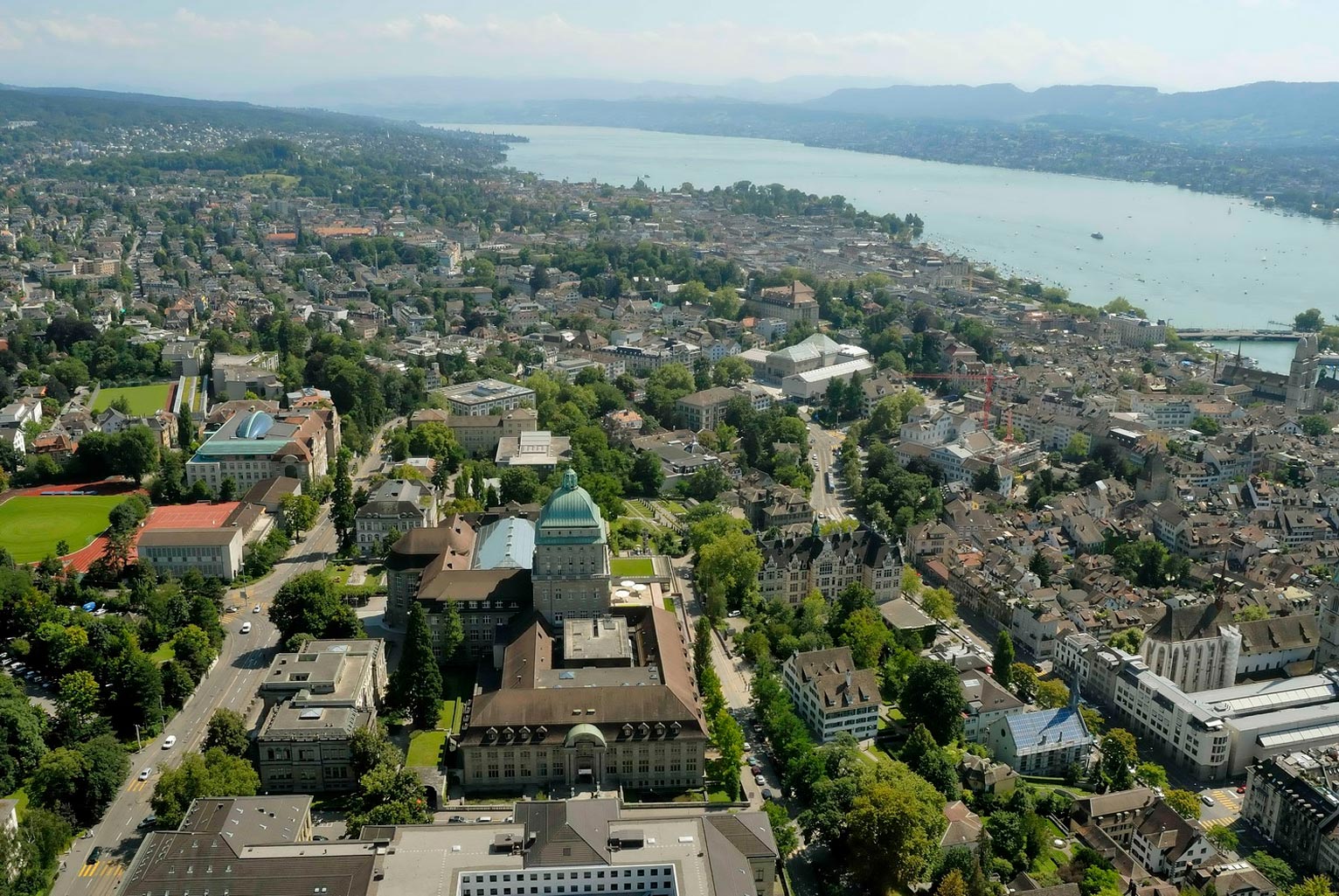Jump directly to
Ushering in a new decade
On the occasion of our 10th anniversary, we invite you to browse through the Center’s highlights from the past decade. What are the social and economic origins of populism? How can we reduce inequality? Is culture key? How can we keep Swiss finance in the game? Can Europe be saved? Answers to these and other important questions are provided by numerous experts in lectures, interviews, and papers made possible by the UBS Center. We have grouped the diverse topics and issues into six clusters that best reflect the Center's focus. Throughout the course of the year we will publish these compilations here.
On the occasion of our 10th anniversary, we invite you to browse through the Center’s highlights from the past decade. What are the social and economic origins of populism? How can we reduce inequality? Is culture key? How can we keep Swiss finance in the game? Can Europe be saved? Answers to these and other important questions are provided by numerous experts in lectures, interviews, and papers made possible by the UBS Center. We have grouped the diverse topics and issues into six clusters that best reflect the Center's focus. Throughout the course of the year we will publish these compilations here.

How to rewire globalization
The increasing interdependence of world economies is a key aspect of globalization which comes with a multitude of consequences for the world population. The implications are not all bad, yet there are numerous worrisome effects, commonly referred to as the globalization backlash. Resurgent nationalism and increasing populism, rejection of free trade, opposition to immigration, growing global inequality, and a retreat from multilateralism: These are the defining issues of our time that fuel the globalization backlash. What are the causes of these phenomena and what are effective solutions to address these issues?
Learn more
The increasing interdependence of world economies is a key aspect of globalization which comes with a multitude of consequences for the world population. The implications are not all bad, yet there are numerous worrisome effects, commonly referred to as the globalization backlash. Resurgent nationalism and increasing populism, rejection of free trade, opposition to immigration, growing global inequality, and a retreat from multilateralism: These are the defining issues of our time that fuel the globalization backlash. What are the causes of these phenomena and what are effective solutions to address these issues?
Learn more

How to design the finance of the future
Being a core area of economics, finance related topics are reflected in numerous activities of the UBS Center. Questions on the most diverse aspects of finance are key: What can we learn from past financial crises? What does a fair tax system look like? What does the financial system of the future look like? How can we keep Swiss finance in play? How do we deal with sovereign debt?
Learn more
Being a core area of economics, finance related topics are reflected in numerous activities of the UBS Center. Questions on the most diverse aspects of finance are key: What can we learn from past financial crises? What does a fair tax system look like? What does the financial system of the future look like? How can we keep Swiss finance in play? How do we deal with sovereign debt?
Learn more

What are causes of polarizing labor market trends?
The labor market is currently dominated by divergent trends. On the one hand, we have enormous technological progress and innovation as well as record high profits of large corporations, which are competing for the best talents with attractive wages and new work models. On the other hand, we have rising prices, a declining labor’s share of GDP, stagnating wages, especially those of middle-class workers, resulting in a polarization of the labor market. What are the causes of these trends and what solutions from business and politics are needed to safeguard prosperity and counteract polarizing trends that are harmful to society?
Learn more
The labor market is currently dominated by divergent trends. On the one hand, we have enormous technological progress and innovation as well as record high profits of large corporations, which are competing for the best talents with attractive wages and new work models. On the other hand, we have rising prices, a declining labor’s share of GDP, stagnating wages, especially those of middle-class workers, resulting in a polarization of the labor market. What are the causes of these trends and what solutions from business and politics are needed to safeguard prosperity and counteract polarizing trends that are harmful to society?
Learn more

How does culture influence economic behavior?
Culture is a core element of human coexistence and encompasses all areas of life, including the economy. The influence of culture on various economic dimensions is the subject of numerous studies and provides important insights into core issues of economic behavior: Which rules and incentives are needed for a successful corporate culture? What role do cultural values play in financial decisions? How can we identify and change harmful practices based on misbeliefs and misconceptions?
Learn more
Culture is a core element of human coexistence and encompasses all areas of life, including the economy. The influence of culture on various economic dimensions is the subject of numerous studies and provides important insights into core issues of economic behavior: Which rules and incentives are needed for a successful corporate culture? What role do cultural values play in financial decisions? How can we identify and change harmful practices based on misbeliefs and misconceptions?
Learn more

How can we achieve a sustainable economy?
No other topic shows the interrelation of our own environment with global developments as clearly as climate change. Economists of all disciplines agree that climate change is having unprecedented effects on economic and social development and should be one of our top priorities. If we want to sustainably reduce CO2 emissions, globally coordinated measures are needed. The question is, how do we do that? What are the costs of climate change and what are sensible measures in the fight against global warming?
Learn more
No other topic shows the interrelation of our own environment with global developments as clearly as climate change. Economists of all disciplines agree that climate change is having unprecedented effects on economic and social development and should be one of our top priorities. If we want to sustainably reduce CO2 emissions, globally coordinated measures are needed. The question is, how do we do that? What are the costs of climate change and what are sensible measures in the fight against global warming?
Learn more

How can we reduce inequality?
Inequality, opportunities, and development is a subject area that encompasses numerous current social issues. How can we reduce inequality? What are the causes of social and economic inequality? How can we create opportunities for women in the labor market? What measures help to combat inequality in developing countries?
Learn more
Inequality, opportunities, and development is a subject area that encompasses numerous current social issues. How can we reduce inequality? What are the causes of social and economic inequality? How can we create opportunities for women in the labor market? What measures help to combat inequality in developing countries?
Learn more

Committed to world-class research
The UBS Center for Economics in Society, UBS Center in short, is an Associated Institute at the Department of Economics of the University of Zurich.
It was established in 2012, enabled by a founding donation by UBS, which the bank made on the occasion of its 150th anniversary. In view of the generous donation, the university named the UBS Center after its benefactor.
The UBS Center serves two main aims. First, it enables world-class research in economics on all levels, to be conducted at the University’s Department of Economics. It thereby supports the department’s ambition to become one of the top economics departments in Europe and to make Zurich one of the best places for research in economics. The UBS Center’s other aim is to serve as a platform for dialogue between academia, business, politics, and the broader public, fostering continuous knowledge transfer. Delivering on these aims will also strengthen the position of Zurich, and Switzerland more generally, as a leading location for education and business.
The UBS Center is governed by and financed through an independent foundation, the UBS Foundation of Economics in Society, chaired by former Federal Councillor Kaspar Villiger. It is led by a management team consisting of Prof. Ernst Fehr, Director, Prof. Joachim Voth, Scientific Director and Dr. Matthias Ammann, Chief Operating Officer.
The Center’s Advisory Board, comprised of some of the most renowned economists of our time, including several Nobel Prize laureates, ensures the high quality of the work at the UBS Center, and provides guidance on all academic matters. Its members include Nobel Prize laureates Prof. Esther Duflo, Prof. Abhijit Banerjee, Prof. Oliver Hart, Prof. James Heckman, Prof. Daniel Kahneman, Prof. Thomas Sargent, Prof. Robert Shiller, and many more.
The UBS Center for Economics in Society, UBS Center in short, is an Associated Institute at the Department of Economics of the University of Zurich.
It was established in 2012, enabled by a founding donation by UBS, which the bank made on the occasion of its 150th anniversary. In view of the generous donation, the university named the UBS Center after its benefactor.
